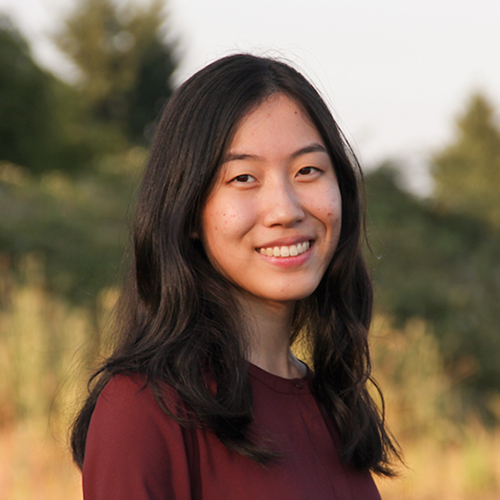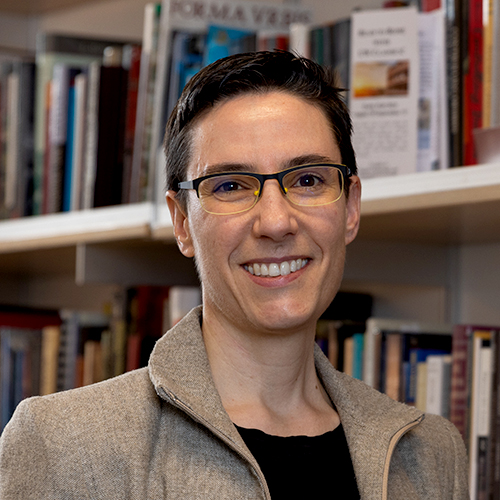
When Helen Louise Noyes graduated from the UW in 1969, she interviewed for numerous corporate management training programs. Most were resistant to hiring a woman. So when a recruiter from the Central Intelligence Agency (CIA) came to campus, she signed up for an interview with few expectations. She was quickly hired.
Noyes went on to a long career with the CIA before retiring in 2006. Inspired by her work experience and her love of languages, she recently created the Jonathan and Helen Louise Noyes Language Scholarship Fund in the Jackson School of International Studies. Through a generous blended gift of a bequest and annual contributions, the fund provides support for UW students studying challenging languages.
We can’t get along if we can’t communicate with one another.
Languages were an important part of Noyes’s own UW experience. She studied German from the start, and later added Russian as a major in Far Eastern and Slavic Studies. She still recalls having German class at 8:30 am, followed directly by her Russian class at 9:30 am. “I liked languages,” she says simply. But it wasn’t Noyes’s language skills that most impressed the CIA recruiter. It was her analysis of photos on the CIA recruitment brochure.
“I asked the recruiter if the photos were from the Cuban Missile Crisis, and he asked me why I thought that,” Noyes recalls. “I proceeded to point out military vehicles, missiles, and launch pads. I have no idea how I knew what I was seeing, or even if I was correct! But he immediately wrote down that the imagery analysis component at the CIA should hire me.”

As the name implies, imagery analysis involves extracting information from photos — at that time, mostly from satellites and reconnaissance aircraft — that might be useful to the United States. For her first assignment, Noyes used satellite images to study the economic capabilities of countries closed to the US, assessing their capacity to produce various products. She was soon promoted to another position that used a wider variety of sources to assess foreign economies.
Her next promotion was to a management role. As she rose the management ladder, she found even greater opportunities when imagery analysis and mapping merged as the National Geospatial-Intelligence Agency in the 1990s. By the time Noyes retired, she was a Senior Intelligence Service Officer, among the CIA’s executive ranks.
Noyes’s favorite part of the job? Mentoring less experienced staff. “I love to mentor,” she says. “A lot of people came into the agency who had never worked on intelligence issues, and the opportunity to teach them was exciting. Many dove into it with great zeal.” That same drive to encourage others led Noyes to contact the UW last year about creating a scholarship for language students.

Two factors convinced Noyes to support language study. The first was her own missed opportunity with language. While at the UW, she learned of a program to study Russian in Moscow, but she couldn’t afford it. “It was a situation that ate at me for decades,” she says. The other factor was seeing the paucity of job candidates in the Intelligence Community with language skills or an interest in pursuing language study once they were hired.
Her own work in imagery analysis did not require fluency in another language, but Noyes found that her knowledge of Russian helped when she was stumped by an image. She would consult Russian books, which helped her understand the industrial processes she was seeing. “No one else there could do that,” she says. “It became clear that too few people knew languages of regions they were focused on. It didn’t make sense to me.”
Noyes’s UW gift focuses on languages categorized by the State Department as Level 3 or higher, meaning that they are difficult for native English speakers to learn. But an interest in the CIA or State Department is not required for scholarship recipients. Noyes believes language proficiency is valuable for success in any field involving communication across countries and cultures. Students in a wide range of disciplines will have the opportunity to benefit from her scholarship support.
“Becoming conversant in another language makes for a more well-rounded person, who can engage with and understand persons from another culture,” Noyes says. “Whether the speaker is employed by the US government, an international business, or a non-governmental organization doing charitable work abroad, our nation will benefit. It may sound like hubris, but I think better cross-cultural understanding would help foster world peace. We can’t get along if we can’t communicate with one another.”
. . .
To learn how you can make a bequest gift to the College of Arts & Sciences, or combine annual contributions with a bequest, contact Damian Peterson at damianbp@uw.edu.
More Stories

Two Majors, Complementary Skills
Elizabeth Xiong (2024), a double major in art history and computer science, shares how she gained different and complementary skills from each major.

Exploring Connections Through Global Literary Studies
The UW's new Global Literary Studies major encourages students to explore literary traditions from around the globe and all eras of human history.

Lifting Marginalized Voices — from Ancient Rome
"Interesting, frustrating, and necessary,” is how Sarah Levin-Richardson, professor of Classics, describes her research into the lives of enslaved individuals in the ancient world.